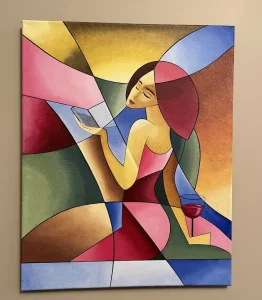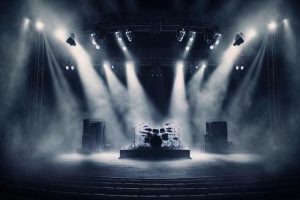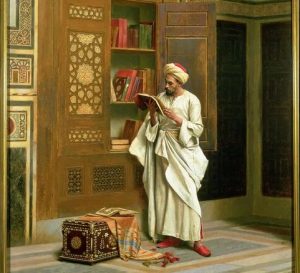What Are the 3 Main Types of Art
The vast and beautiful world of art can be explored through various mediums and expressions. While countless art forms exist, three main categories encompass a significant portion of artistic creation:
- Visual Arts: This category encompasses everything we can see, including painting, sculpture, drawing, photography, printmaking, and architecture. These art forms utilize visual elements like color, line, shape, and form to convey emotions, ideas, and stories.
- Performing Arts: Here, art comes alive through movement and sound. Dance, music, and theater all fall under this category, where artists use their bodies, voices, and instruments to create captivating experiences that unfold in real time.
- Literary Arts: The written word takes center stage in this category, encompassing works like poetry, prose, fiction, and drama. Literary artists use language to evoke emotions, paint vivid pictures with words, and tell stories that transport readers to new worlds.
Also, read about What is Pattern in Art?
Here these three arts are deeply explained.
Visual Arts
Painting
Painting is perhaps one of the most well-known forms of visual art, dating back thousands of years. It involves the application of pigments onto a surface, typically using brushes, knives, or other tools. Paintings can vary widely in style, from realistic to abstract, and encompass various techniques such as oil painting, watercolor, and acrylic.
Sculpture
Sculpture is the art of creating three-dimensional forms by shaping or combining materials such as clay, stone, wood, metal, or plastic. Sculptors manipulate these materials to evoke emotions, tell stories, or capture the essence of their subjects. Sculptures can be found in public spaces, museums, and private collections worldwide.
Drawing
Drawing is the foundation of visual art, encompassing a wide range of techniques and styles. Artists use pencils, pens, charcoal, or pastels to create lines, shapes, and textures on paper or other surfaces. Drawings can be quick sketches, detailed studies, or intricate works of art, serving as a means of expression or exploration for artists.

Performing Arts
Theater
Theater is a collaborative form of performing art that combines elements such as acting, dialogue, music, and stagecraft to present stories or evoke emotions before an audience. It encompasses various genres, including drama, comedy, musicals, and experimental theater, and often reflects societal issues, cultural traditions, and human experiences.
Dance
Dance is a rhythmic movement of the body, often accompanied by music or other sounds. It serves as a form of expression, communication, and cultural identity across different societies and periods. Dance styles can range from classical ballet to contemporary dance, traditional folk dances to avant-garde performances, each with its unique movements and meanings.
Music
Music is the art of organizing sound in time, creating melodies, harmonies, and rhythms that evoke emotions and convey messages. It encompasses a vast range of genres, including classical, jazz, rock, pop, hip-hop, and electronic music, each with its distinct instruments, styles, and cultural influences.

Literary Arts
Poetry
Poetry is a form of literary art that uses language to evoke imagery, emotions, and ideas. It often employs techniques such as rhyme, rhythm, metaphor, and symbolism to convey complex meanings in a condensed form. Poems can explore a wide range of themes, from love and nature to politics and identity, and are appreciated for their beauty and depth of expression.
Prose
Prose refers to written or spoken language that follows natural speech patterns and grammatical structure. It encompasses various forms such as novels, short stories, essays, and articles, allowing writers to explore characters, settings, and themes in depth. Prose is widely used for storytelling, analysis, persuasion, and communication in everyday life and literature.

Drama
Drama is a literary form that presents stories through dialogue and action, often performed on stage or screen. It encompasses genres such as tragedy, comedy, farce, and melodrama, engaging audiences through conflict, tension, and resolution. Dramatic works explore human relationships, societal issues, and moral dilemmas, offering insights into the human condition. For more interesting information visit our website peerlifestyle.com
Conclusion
In conclusion, art is a multifaceted realm of creativity that enriches our lives and expands our horizons. Whether through visual, performing, or literary expressions, art invites us to explore, reflect, and connect with the world around us. By appreciating the diverse forms of art, we gain a deeper understanding of ourselves and the human experience.
FAQs
What are the main characteristics of visual arts?
Visual arts encompass various mediums such as painting, sculpture, and drawing, with a focus on creating visual representations of ideas, emotions, or observations.
How does dance contribute to culture?
Dance serves as a means of cultural expression, preserving traditions, rituals, and stories passed down through generations while also evolving and adapting to contemporary contexts.
What role does music play in society?
Music plays a significant role in society by providing entertainment, expressing emotions, fostering cultural identity, and facilitating social cohesion and communication.
What distinguishes poetry from prose?
Poetry is characterized by its use of heightened language, imagery, and rhythm to evoke emotions and create meaning, whereas prose follows natural speech patterns and grammatical structure.
Why is theater considered a collaborative art form?
Theater involves various artists and professionals, including actors, directors, playwrights, designers, and technicians, working together to create live performances that engage and entertain audiences.
